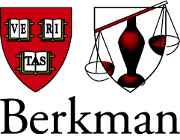UNC School of Journalism and Mass Communication graduate students will present 13 research papers at the AEJMC Southeast Colloquium in Tampa this week. Ph.D. student Liz Woolery, who works in our media law center, will present two papers, one of which won third place in the Law and Policy Division. Both of Liz’s papers are about the rights of journalists and others to gather news.
For this conference, papers go through a process of blind review, and then the best papers are selected to be presented at the conference. Faculty and student authors compete against one another.
This will be the first academic conference for most of the students, but they’re ready. They have polished their papers and rehearsed their presentations.
Accepted Law and Policy Division papers include:
“Documenting Fair Use: Has the Statement of Best Practices Loosened the Fair Use Reins for Documentary Filmmakers?” — Jesse Abdenour, first-year doctoral student
“The Advertising Regulation ‘Green Zone’: Analyzing Parallels of Commercial Speech Jurisprudence As It Might Apply to the Growing Issue of Medicinal Marijuana Advertising, Using the Denver Advertising Ban as an
Illustrative Example” — Joseph Cabosky, first-year doctoral student
“Hazelwood’s Footnote Seven” — Ryan N. Comfort, first-year master’s student
“Consumer Protection Challenges on the Social Web: How the FTC Regulates Consumer-Generated Media as Endorsements and Testimonials in Advertising” — Emily A. Graban, first-year master’s student
“Abortion Informed Consent Laws: How Have Courts Considered First Amendment Challenges?” — Jaya Mathur, first-year master’s student
“How the FTC Has Enforced Its Deception Jurisdiction in Cases Involving an Ill, and Therefore, Vulnerable Audience” — Emery Rogers, first-year master’s student
“A Decade of True Threats Decisions Since Virginia v. Black: The Digital Age Demands Supreme Court Attention to True Threats Definition and Doctrine” — Lynn Marshele Waddell, first-year master’s student
“The Press, the Public, and Capital Punishment: California First Amendment Coalition and the Development of a First Amendment Right to Witness Executions” — Elizabeth Woolery, second-year doctoral student
“When News(Gathering) Isn’t Enough: The Right to Gather Information in Public Places” — Elizabeth Woolery, second-year doctoral student
Accepted Newspaper and Online Division papers include:
“Three Days a Week: Has a New Production Cycle Altered The Times-Picayune’s News Coverage?” — David Bockino, first-year doctoral student
Accepted Open Division papers include:
“The Creepiness Factor: Explaining Conflicting Audience Attitudes toward Tailored Media Content” — Lisa Barnard, second-year doctoral student
“What Motivates People to Pass on Anti-brand Rumors Online?” — Hyosun Kim, second-year doctoral student
“What Sports Journalists Need to Know: Four Areas of Student-athlete Privacy Invasion” — Sada Reed, first-year doctoral student

